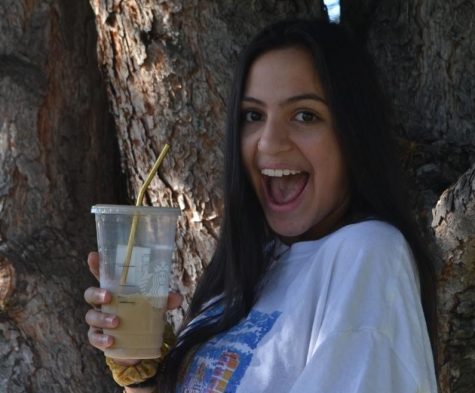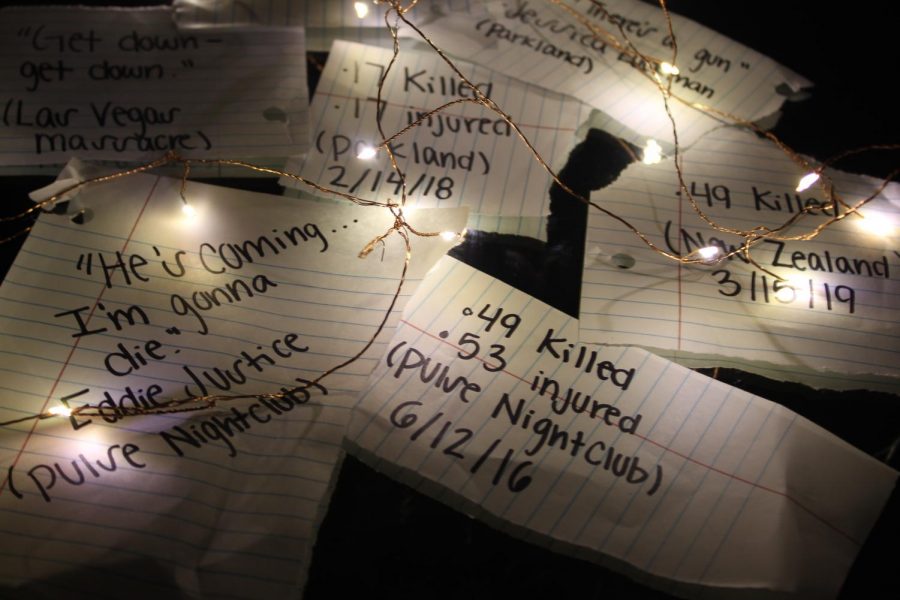Stop glorifying the guilty: Reframing media coverage of tragedy
On Friday, March 15, two mosques only three miles away from each other were attacked at Christchurch in New Zealand, leaving 49 people dead. So far, four people were arrested in relation to the attacks.
Following the shooting in New Zealand Prime Minister Jacinda Ardern, says, “He is a terrorist, he is a criminal, he is an extremist. But he will, when I speak, be nameless,” according to NPR.
The public sees the pictures and videos that follow these horrible shootings. People follow the news closely in order to find out who was responsible for the awful act of hate. We watch as the media highlights the perpetrator, who does not deserve the spotlight at all.
There are a number of problems with the way the media handles these situations, one of the biggest problems being that the media plasters the perpetrator’s name, age, face, and background over every media platform possible. The worst part is that society feeds into it, almost like they are obsessed with knowing who this person is and what their motives were.
While there is nothing specifically wrong with being curious about the news, there is something wrong when we highlight the guilty more than we mourn the innocent. We feed into the glorification of this whole situation by giving the perpetrator what they wanted in the first place: attention.
When we put the convicted into the spotlight, the public also runs the risk of creating a copycat effect, a crime ¨inspired or motivated by initial crimes.¨
Making the guilty famous exposes more people to ideas they would not otherwise have without seeing them all over the media. This is dangerous considering how influential the media is on society. Making these perpetrators famous has consequences that society simply does not have time for.
The media does their job of getting the news of a shooting out to the public, but they fail to recognize the harm they do by overstating the names of the shooters. By stating their names repetetively, we give the perpetrators the attention and fame they want, but do not deserve.
In order to stop the attention of these killers, Tom and Caren Teves founded ¨No Notoriety.” This foundation is a challenge to the media to stop the use of photos, names, and therefore fame of these shooters. ¨No Notoriety¨ is not only powerful because of its main goal of public safety, but also because it shows an understanding of what repercussions come from showcasing a shooter’s name and face in the media.
One may argue that by not naming the prosecutor or showing their face, we could accuse anyone of the crime. The point of ¨No Notoriety¨ is not to limit the information on the situation given by officials; it is to report the facts surrounding the shooter’s profile without the use of information that causes the infamy of the shooter.
I am tired of hearing about innocent people being killed for no reason, but I am also tired of seeing the perpetrator getting all the attention. In cases of shootings, the legacy of the innocent who lost their lives should be remembered, and the infamous perpetrator should not be recognized at all.
Something as devastating as a shooting is bound to create attention, but as a human race, we need to rethink what we are capturing in the media. It is time to embrace change; we need to stop making shooters famous, once and for all.

Aydin Valaski is a senior this year and Editor-in-Chief for The Westwind. Aydin is hoping to go to University of Hawaii at Manoa to study Special Education...




Katlyn Riley • Mar 21, 2019 at 11:45 am
Aydin you are unbelievably making a difference one word and action at a time this is truly incredibly inspirational keep it up❤️